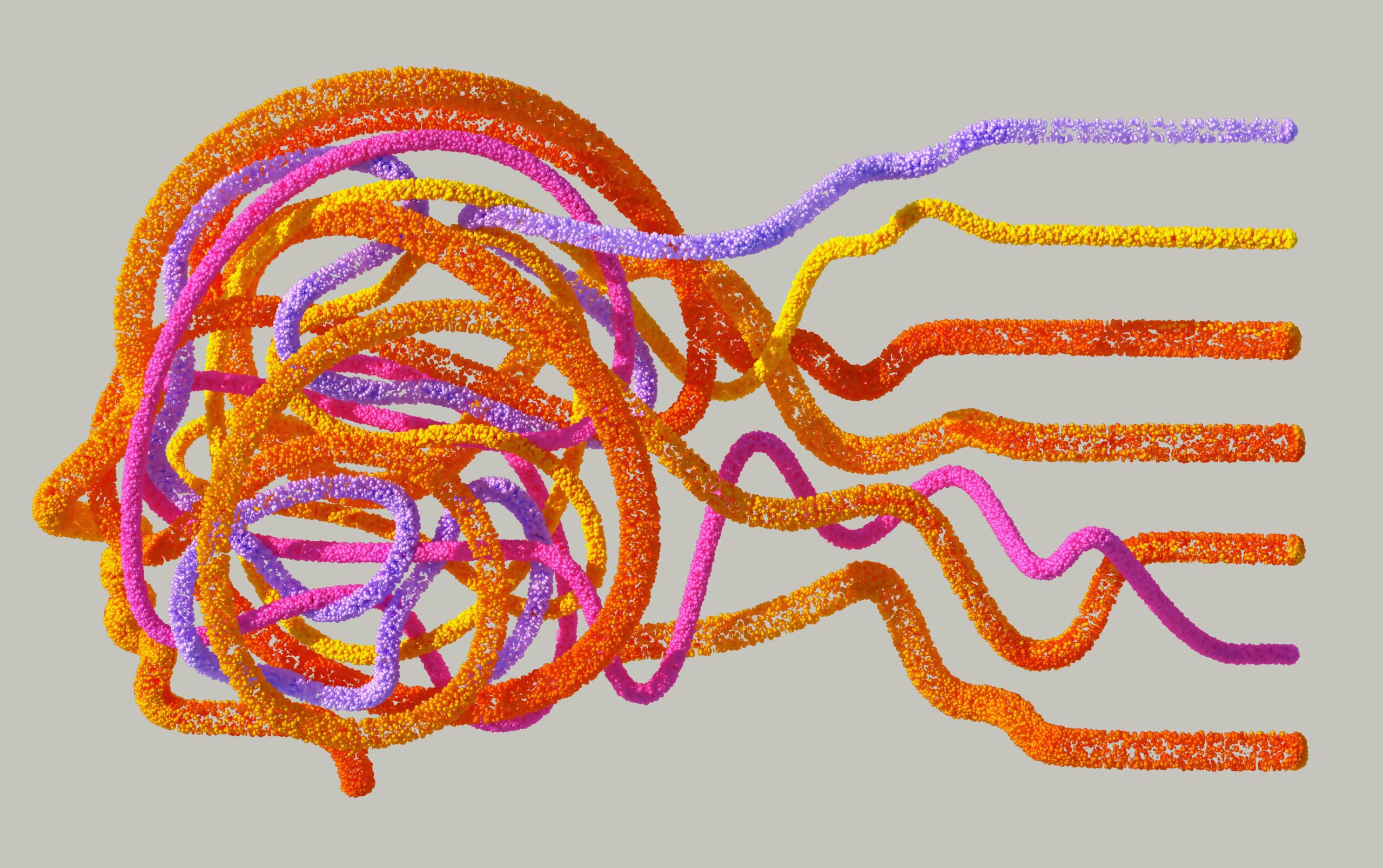The intersection of neuroscience and ethics has never been more critical. As brain science advances at unprecedented rates, the need for inclusive, democratic participation in shaping neuroethical policies becomes essential for our collective future.
Our brains define who we are, how we think, and what makes us human. Yet the rapid development of neurotechnologies—from brain-computer interfaces to neural imaging and cognitive enhancement tools—raises profound questions about privacy, identity, autonomy, and human dignity. These questions cannot be answered by scientists alone; they require the collective wisdom of society.
🧠 The Emerging Landscape of Neurotechnology
Neuroscience has transitioned from purely academic research to commercial applications that directly affect everyday lives. Brain-computer interfaces allow paralyzed individuals to control prosthetic limbs with their thoughts. Neuroimaging techniques can detect early signs of Alzheimer’s disease decades before symptoms appear. Transcranial magnetic stimulation offers new hope for treatment-resistant depression.
These innovations promise tremendous benefits, yet they also introduce unprecedented ethical challenges. When private companies develop algorithms that can predict our thoughts, when employers might screen job candidates based on brain scans, or when military applications of neurotechnology push the boundaries of human enhancement, we face questions that affect everyone.
The velocity of innovation in brain science often outpaces our ability to establish appropriate regulatory frameworks. This gap creates vulnerability—not just for individual rights, but for social justice, equality, and the very definition of what it means to be human in the 21st century.
Why Public Voices Matter in Neuroethical Decisions
Historically, scientific and medical ethics were largely determined by experts—researchers, clinicians, and academics who understood the technical complexities. While expertise remains invaluable, neuroethics demands a broader conversation that includes diverse public perspectives.
The Democratization of Brain Science Policy
Citizens bring unique insights that scientists may overlook. People from different cultural backgrounds, socioeconomic statuses, and lived experiences understand how neurotechnologies might affect their communities in ways laboratory researchers cannot fully anticipate. A single mother might raise concerns about cognitive enhancement drugs creating educational inequalities. A religious leader might offer perspectives on consciousness and identity that inform policy on brain-death determination.
Public engagement ensures that neuroethical policies reflect societal values rather than solely technical feasibility. When communities participate in shaping these decisions, the resulting frameworks gain legitimacy and are more likely to be accepted and followed.
Building Trust Through Transparency
Trust in science has faced challenges in recent years. When decisions about brain science happen behind closed doors, public skepticism grows. Transparent, participatory processes build confidence by showing that ethical considerations are taken seriously and that diverse concerns are genuinely heard.
This transparency also creates accountability. When policymakers know they must explain their decisions to an informed public, they’re more likely to consider broader implications beyond immediate scientific or commercial interests.
Current Challenges in Public Engagement 🔍
Despite growing recognition of the importance of public voices, significant barriers prevent meaningful participation in neuroethical policy development.
The Knowledge Gap
Neuroscience involves complex concepts that can seem inaccessible to non-specialists. Terms like “neuroplasticity,” “functional connectivity,” and “optogenetics” create barriers to understanding. Without adequate science communication, citizens may feel unqualified to contribute opinions, even when the ethical questions don’t require technical expertise.
Educational initiatives must bridge this gap by translating neuroscience concepts into accessible language without oversimplification. The challenge lies in conveying enough information for informed opinions while avoiding technical jargon that alienates participants.
Representation and Diversity Issues
Current public engagement efforts often fail to include truly representative samples of society. Participants in ethics forums and consultations tend to be educated, affluent, and already interested in science policy. This creates blind spots where marginalized communities—those potentially most affected by inequitable access to neurotechnologies—remain unheard.
Effective engagement requires proactive outreach to underrepresented groups, including people with disabilities, minority communities, economically disadvantaged populations, and those with limited formal education. Their perspectives are essential for developing just and equitable policies.
Balancing Speed and Deliberation
Innovation moves quickly. A neurotechnology company might develop a new consumer product in months, while meaningful public consultation takes years. This temporal mismatch creates pressure to skip participatory processes or treat them as perfunctory exercises rather than genuine dialogue.
Finding the right balance between timely policy development and thorough public engagement remains one of the field’s persistent challenges.
Successful Models for Public Participation 🌟
Despite these challenges, innovative approaches demonstrate that meaningful public engagement in neuroethics is achievable and valuable.
Citizens’ Juries and Consensus Conferences
These structured formats bring together diverse groups of citizens to learn about specific neuroethical issues, question experts, deliberate, and reach conclusions. Unlike traditional public comments or surveys, these methods allow participants to develop informed opinions through education and dialogue.
A citizens’ jury on neurotechnology in employment might include workers from various industries, union representatives, human resources professionals, and people with disabilities. Over several sessions, they would hear from neuroscientists, ethicists, employers, and advocates before deliberating and issuing recommendations.
Digital Platforms for Broader Engagement
Online tools expand participation beyond those who can attend in-person events. Digital forums, interactive educational modules, and virtual town halls can reach geographically dispersed populations and accommodate different schedules and accessibility needs.
These platforms work best when combined with robust moderation, clear information architecture, and mechanisms to ensure diverse voices aren’t drowned out by the most vocal participants.
Community-Based Participatory Research
This approach involves communities as partners in research design, not just subjects or consultation targets. In neuroethics, this might mean working with patient advocacy groups to shape research priorities or collaborating with community organizations to understand cultural perspectives on cognitive enhancement.
By integrating public voices from the beginning rather than seeking input only after decisions are made, this model creates more relevant and responsive policies.
Key Neuroethical Issues Requiring Public Input
Several emerging areas in brain science particularly demand broad public participation in policy development.
Neural Privacy and Mental Liberty
As neurotechnologies become capable of reading increasingly sophisticated brain signals, questions about mental privacy become urgent. Should there be absolute protections for brain data? Can employers or insurers ever access neural information? What constitutes “mental liberty”—the right to cognitive self-determination?
These questions touch fundamental human rights and require societal consensus, not just expert opinion. Different cultures may have varying perspectives on privacy, individualism, and the boundaries of personal autonomy.
Cognitive Enhancement and Social Justice
Pharmaceuticals, brain stimulation devices, and other technologies can potentially enhance cognitive function. This raises fairness questions: If some can afford cognitive enhancement while others cannot, will this deepen inequality? Should there be limits on enhancement? How do we balance individual liberty with collective concerns about creating cognitive hierarchies?
Public engagement can surface concerns about access, fairness, and the social implications of enhancement that technical experts might not prioritize.
Neurotechnology in Criminal Justice
Brain-based lie detection, risk assessment algorithms, and interventions aimed at reducing criminal behavior all raise profound ethical questions. The public has a stake in how these technologies are used—or whether they should be used at all—in contexts that affect liberty, punishment, and rehabilitation.
Community perspectives on justice, fairness, and redemption should inform policies in this domain, as these reflect values beyond scientific efficacy.
Building Effective Engagement Infrastructure 🏗️
Creating sustainable mechanisms for public participation requires institutional commitment and resources.
Educational Foundations
Effective participation requires baseline science literacy. Educational systems should integrate neuroscience concepts and neuroethical thinking into curricula at all levels. Public science museums, libraries, and community centers can offer accessible programming on brain science and its implications.
Science communicators play a crucial role in translating complex concepts without distortion, creating materials that inform without overwhelming or misleading.
Institutional Commitments
Regulatory bodies, funding agencies, and research institutions must embed public engagement in their standard processes. This means allocating resources for consultation, training staff in facilitation methods, and creating timelines that allow genuine participation rather than token gestures.
Professional societies in neuroscience and neuroethics should establish best practices and standards for public engagement, recognizing it as an essential component of responsible research and policy development.
Protecting Against Manipulation
Public engagement must be structured to prevent capture by special interests. When corporations or advocacy groups with specific agendas dominate consultations, the process loses legitimacy. Independent facilitation, transparent funding disclosure, and diverse participant recruitment help maintain integrity.
The Path Forward: A Collaborative Vision 🚀
Shaping the future of brain science requires reimagining the relationship between experts and publics. Rather than viewing public engagement as an obstacle to progress or a box to check for compliance, we must recognize it as essential to developing ethical, just, and socially beneficial neuroscience.
Adaptive Governance Models
Static regulations cannot keep pace with neuroscience innovation. We need adaptive governance systems that incorporate ongoing public input, monitor emerging technologies, and adjust policies as understanding evolves. This requires feedback loops between researchers, policymakers, and communities.
International cooperation becomes increasingly important as neurotechnologies cross borders. Global dialogues that include diverse cultural perspectives can help establish shared ethical frameworks while respecting legitimate differences in values and priorities.
Empowering the Next Generation
Young people will inherit the neurotechnological landscape we create today. Youth engagement in neuroethics ensures their voices shape policies that will affect their futures. Educational programs that develop critical thinking about brain science and its implications prepare citizens for ongoing participation in these crucial conversations.
From Consultation to Co-Creation
The most ambitious vision moves beyond consulting publics toward genuine co-creation of neuroethical frameworks. This means recognizing different forms of expertise—lived experience, cultural knowledge, ethical reasoning—as valid alongside technical scientific expertise.
When diverse voices collaborate from the earliest stages of research design through policy implementation, the resulting frameworks are more robust, legitimate, and responsive to genuine human needs and concerns.
Making Your Voice Heard in Neuroethics 💪
Individual citizens can contribute to shaping neuroethical policies through multiple channels. Staying informed about neuroscience developments and their implications is the first step. Following reputable science journalism, engaging with educational resources, and participating in public forums all matter.
When regulatory agencies, research institutions, or government bodies solicit public comment on neuroethical issues, responding thoughtfully adds your perspective to the record. Joining or supporting organizations focused on bioethics, patient advocacy, or responsible innovation amplifies your voice.
Local engagement also counts. Conversations with family, friends, and community members about the ethical implications of brain science help build broader awareness and informed public opinion. Teachers, librarians, and community leaders can facilitate these discussions in accessible ways.

The Stakes: Why This Matters Now
The decisions we make today about neurotechnology governance will shape human society for generations. Whether brain-computer interfaces remain medical devices or become consumer products, how we protect neural data, and who has access to cognitive enhancement technologies—these choices will define opportunities, rights, and the very nature of human experience in the coming decades.
Without inclusive, democratic participation in these decisions, we risk creating a future where neurotechnologies exacerbate existing inequalities, concentrate power, and undermine fundamental human rights. The alternative—a future where diverse voices shape ethical frameworks that promote human flourishing—remains achievable if we commit to meaningful public engagement now.
Brain science belongs to everyone because our brains belong to us. The future of neuroscience and neuroethics must be created together, with public voices not as afterthoughts but as essential partners in shaping policies that reflect our collective values and protect our shared humanity.
The conversation about neuroethics is just beginning. Your participation matters because the future being shaped is yours. By empowering public voices in neuroethical policy decisions, we ensure that brain science advances not just rapidly, but responsibly—guided by human wisdom, diverse perspectives, and democratic values that honor the extraordinary complexity and dignity of the human mind.
Toni Santos is a cognitive storyteller and cultural researcher dedicated to exploring how memory, ritual, and neural imagination shape human experience. Through the lens of neuroscience and symbolic history, Toni investigates how thought patterns, ancestral practices, and sensory knowledge reveal the mind’s creative evolution. Fascinated by the parallels between ancient rituals and modern neural science, Toni’s work bridges data and myth, exploring how the human brain encodes meaning, emotion, and transformation. His approach connects cognitive research with philosophy, anthropology, and narrative art. Combining neuroaesthetics, ethical reflection, and cultural storytelling, he studies how creativity and cognition intertwine — and how science and spirituality often meet within the same human impulse to understand and transcend. His work is a tribute to: The intricate relationship between consciousness and culture The dialogue between ancient wisdom and neural science The enduring pursuit of meaning within the human mind Whether you are drawn to neuroscience, philosophy, or the poetic architecture of thought, Toni invites you to explore the landscapes of the mind — where knowledge, memory, and imagination converge.




